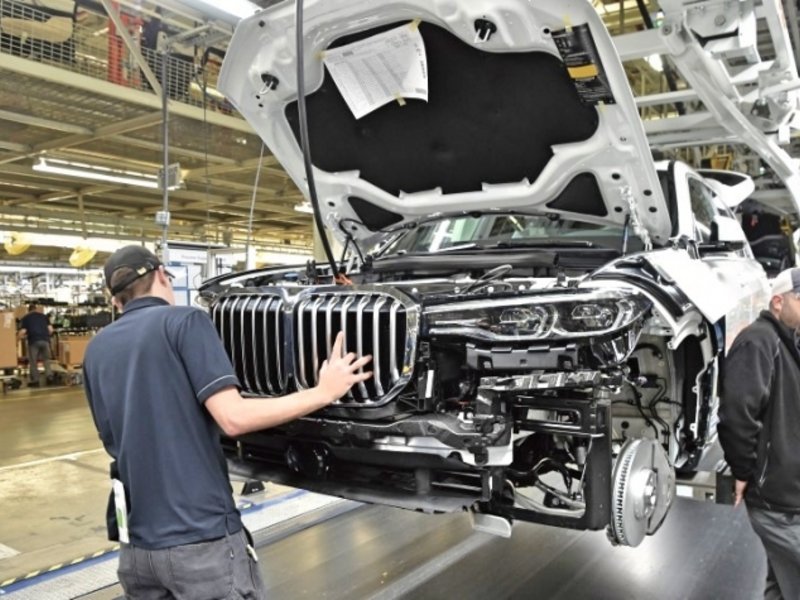
BMW’s largest plant in the world, in Spartanburg, S.C., delivered a record 411,620 vehicles last year, as global demand for crossovers soared.
The 7 million square-foot factory, which assembles five BMW X-series crossovers, produced 15 percent more vehicles in 2019 than the prior year. Production volume topped the previous record, set in 2016, by 449 units. The plant has an annual capacity of 450,000 units.
Since 2017, the Spartanburg plant has launched five new or redesigned BMW X models, four Motorsport X models and two electrified vehicles.
Luxury crossover and SUV sales in the U.S. rose 6.6 percent to 1.386 million last year from 1,300,901 in 2018, according to the Automotive News data center.
The X5 was the volume leader in Spartanburg last year, accounting for 161,096 units produced. The compact X3 came in second, accounting for 115,088 units.
The X7, BMW’s largest SUV to date, arrived in U.S. stores last year. That model accounted for 52,619 units of production at Spartanburg last year.
“The past three years have been among the most challenging in the history of Plant Spartanburg,” Knudt Flor, president and CEO of BMW Manufacturing said in a statement. “Our plant’s model portfolio is fresh and popular around the world.”
The past few years also witnessed an escalation in global trade disputes between the U.S. and Europe and China, with the threat of new tit-for-tat tariffs.
About 70 percent of BMW’s Spartanburg plant’s production volume is exported to around 125 markets worldwide, with China being the biggest export market for the plant. Nearly a third of that export volume was headed to China in 2018.
BMW stopped exporting the X3 compact crossover from the U.S. to China in 2018, adding production at plants in Rosslyn, South Africa, and Shenyang, China.